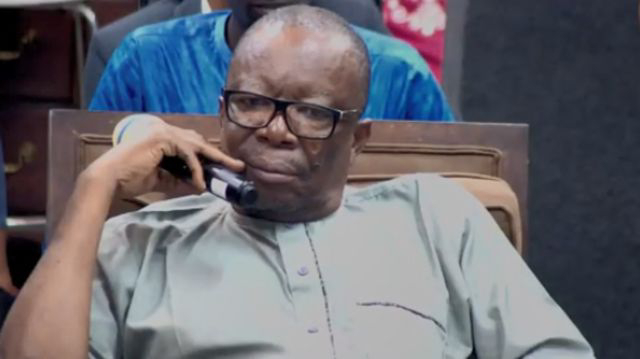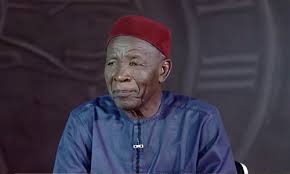
Situation in Nigeria today worse than it was in 1984, says ASUU
Nigeria's current political climate has drawn criticism from the Academic Staff Union of Universities, which called the nation's leadership deficiencies and corruption "hopeless."
This mood stands in direct contrast to the “Renewed Hope” catchphrase of President Bola Tinubu’s administration.
This was said by ASUU President Professor Emmanuel Osodeke on Thursday during the ASUU State of the Nation Conference, which was held in Abuja in 2024.
Convened under the theme "Nigeria in a State of General Crisis: The Search for a New Path to Development," the conference's goals were to discuss the nation's rapidly worsening circumstances and provide answers meant to instill optimism and progress.
Osodeke issued a warning, claiming that Nigeria's governance structure has to be changed since it is dominated by foreign interests and only helps a small group of people.
He demanded that Nigeria's resources be applied for the benefit of all inhabitants, expressing dissatisfaction that the country's prosperity had not prevented its people from living in poverty.
Osodeke remarked, "It is depressing to note that the situation today is worse than it was in 1984 as the nation marks its 64th anniversary of independence."
He underlined that ASUU's goal encompasses more than just fighting for better living circumstances for its members; it also involves defending and furthering the socioeconomic and cultural interests of Nigerians.
He pointed out that ASUU was founded in 1978 with the intention of promoting these causes, and that it has since carried out national conferences with the goal of producing concepts for improved governance.
Osodeke compared the current state of affairs to the economic difficulties of 1984, when ASUU hosted its inaugural State of the Nation Conference at the University of Benin.
He bemoaned the fact that today's problems are a result of previous governments' inability to carry out the decisions made at the 1984 conference.
Key challenges emphasised by ASUU at the time included chronic shortages of critical products and services, infrastructure breakdown, mass unemployment, excessive inflation, and the exploitation of Nigeria’s resources by foreign corporations, backed by local elites.
According to Osodeke, similar issues still exist today and are made worse by a foreign-controlled governance system that serves external interests.
Speaking at the occasion as well, Speaker of the House of Representatives Rt. Hon. Tajudeen Abbas, who was represented by a deputy, praised ASUU for its ongoing support of increased university financing and better working conditions for faculty members.
He recognised ASUU's contributions to the development of the country and its influence on Nigeria's educational system.
ASUU urged the government to act quickly to resolve the present issues and put plans in place that will free Nigeria from the grasp of both domestic and foreign exploiters.
The union also emphasised how critical it is to improve the welfare of Nigerians and restore the country's dignity.





